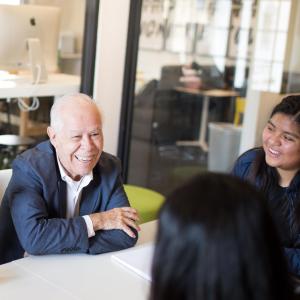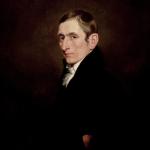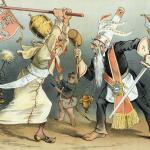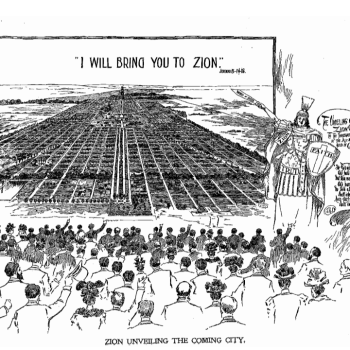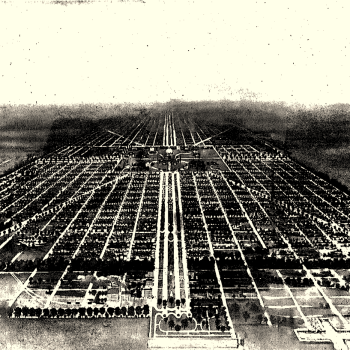“Since we cannot study the future yet, we need the past to help us see the present more clearly.” C. S. Lewis
Rarely does research result in the desire to be a better person. I recall one book from seminary on history method that said the researcher should strive to be objective and neutral. I found, however, this was difficult to maintain as I listened to testimony after testimony from friends, colleagues, and family about Dr. Jesse Miranda this summer. For instance, when Celina Canales, the new director of the Jesse Miranda Center at my school Vanguard University, spoke with such respect and admiration about Miranda, with much happiness and some tears, I realized Miranda was the right research topic.
Jesse Miranda is a true definition of a pioneer. He is often considered the Godfather of the Hispanic/Latino Evangelicalism. His resume shows that he was a founder of movements and organizations especially to help Latino Christians even though his heart never lost focus on Christ and the whole Christian church. His list of accomplishments are very impressive. I hope they will be appreciated by future generations. I know I have grown to have so much respect for his ministry and want to be able to share his history with others.
There were two reasons I pursued a research project about Miranda. First, I read Gastón Espinosa’s excellent book Latino Pentecostals in America that provided Miranda’s biography (the book was also dedicated to him). It revealed that Miranda, in fact, fit the description as the Grandaddy of Latino Evangelicalism. Latino Christianity continues to grow and is a vibrant part of the church. If this is the case, then we need to hear more about Miranda in our Christian history courses.
Second, Miranda was one of the first Latino Christian figures to have an audience with U. S. presidents. As a historian with an interest in faith and politics, this point really stood out to me. For instance, just as one of Billy Graham’s greatest legacy was his relationship to Presidents since Truman, Miranda worked on the topics of immigration and faith-based initiatives with President Clinton and especially with President George W. Bush. Moreover, in the aftermath of 09/11, President Bush had reached out for Miranda to be there with him when he addressed the nation a few days later. Since this is the case, then we need to learn more about Miranda in our US history courses.
One of the themes this year on campus is the year of civility. The importance of public character and the respect of our fellow people made in the image of God is often lacking in the public discourse. Miranda’s legacy was to be a model of civility for those of us today to follow. He was often called a “bridge-builder”, whether it was working in an ecumenical way with Christian organizations or even being available for political figures on both sides of the aisle. In fact, stirred by the violence of the Rodney King case, he put his energy into community building. 9/11 and the Rodney King riots are just two major events in the last forty years where Miranda asked how can Christians constructively respond to these events. Miranda seemed to excel at bridge-building. We really need his guidance today as we continue to look for a path that takes reconciliation and justice more soberly.
One fun question I ask students is who is the most famous Latino you can think of? There is never really a consensus answer even among Latino students. What usually happens is a long pause and then I begin suggesting names. We almost always end up agreeing it is either Cesar Chavez or Selena. What does this exercise reveal? One, it might suggest that our social studies classes are not doing a thorough job introducing students to Latino heroes. In fact, even their knowledge of Chavez or Selena is minimal. Second, it is up to us to begin the process of introducing students to people like Miranda. We are often starved for heroes especially Latino heroes. For example, we might ask what kind of impression does it make for us to see Miranda on stage seated nearby President Bush or receiving a cordial note from President Clinton? We might think what is the big deal? We see Latinos in important roles all the time. Decades ago when Miranda started his work, we did not. And by all accounts, he never actively sought these spaces. Perhaps this is just the way God works―leave it to the God he had dedicated his life to simply to put him there.
Studying Miranda’s life from the available sources also reveals a personal connection. Just like Miranda, I also went to college at Biola University and Fuller Theological Seminary. In addition, we both ended up at Vanguard University. Thus, we both had the So Cal Christian college experience! Sometimes it feels out here in sunny Southern California, where it is currently around 100 degrees, that we are ignored by the general narrative of U.S. history. If this is the case, this means that oftentimes Latino history does not get the attention it deserves. Therefore, I am hoping that more books like Espinosa’s will continue to be published to showcase the contributions of Latinos to U.S. and Christian history. I think this is one of the legacies that Miranda would have wanted. Again, it is comforting to know that I followed a somewhat similar path that he had pioneered in higher learning. I am coming late to learn about Miranda, but his advocacy of Latino college students continues to make an impact even for me. I am hoping in the next decade we see more studies on Miranda and his impact.
In a recent article, Miranda opened up his essay with the Lewis quote at the beginning of this piece as his epigraph. It is a quote I opened up my classes with this semester. It is a key insight about history. History is an academic discipline and we should hold high standards of scholarship. This is why there is a point to the advice to strive to be objective and neutral. However, as Miranda reveals through Lewis, history illuminates where we are going. It is a reliable map to navigate into the future. What history revealed to me this summer is that we need more bridge-builders like Miranda. His love of his family and the church, his commitment to faith and education, and his reputation as a good listener are the type of virtues we can look back to as we learn to model this type of civility in the future.


